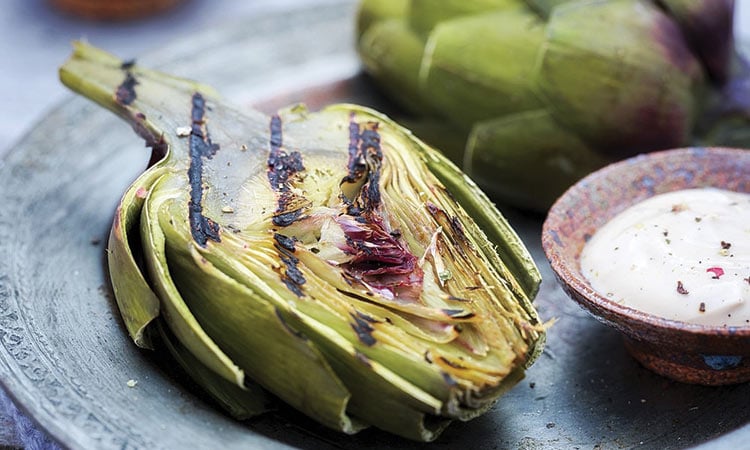Have you noticed your baby shows aversion to breast milk one day and refuses to continue feeding, and the next day he starts enjoying it again? Have you wondered what can be the reason behind this? The reason is there are foods that make breast milk taste bad.
Are you wondering does breast milk taste different depending on what you eat? Yes, what you eat can manipulate the taste of your milk. However, the flavor compounds are passed on at different paces, from the mother’s diet to her milk. While some flavor disappears within a couple of hours, others can remain up to eight hours.
Several types of research have been conducted in this field, and it is clearly found that what mothers eat can give a new flavor to their milk for up to 8 hours. So no wonder your baby goes on nursing strike one day and starts to hang on to your breast the next day.
Here is a list of 15 foods, which when you eat a lot during breastfeeding, the breast milk taste changes.
15 Foods That Make Breast Milk Taste Bad
What do babies taste in breast milk? Well, they can taste anything odd in the breast milk. They are so sensitive to the smell and taste of breast milk that they may refuse to eat if they do not like either! Yes, breastfeeding is full of challenging situations like this!
We are not saying all babies dislike the taste of milk when you eat these foods. However, these are foods that might make breast milk taste bad. If after having these foods your baby seems fussy, it could be he or she does not find it tasty enough. So keep this in mind while you take the serving of these foods.
1. Asparagus
Asparagus is loaded with vitamins, minerals, and dietary fibers, which are highly beneficial for breastfeeding mothers. It is easy to cook as well. However, you might have noticed this vegetable is capable of giving urine an unmistakable pungent smell.
Asparagus can potentially give a bad taste to breast milk also due to its intense flavor. If the baby refuses to drink asparagus-tinged breast milk, it is better to take off asparagus from your plate until the baby starts to eat solids.
2. Spicy food

Not generally harmful, but having hot or spicy food and then breastfeeding the baby can make the baby all fussy during the feeding.. Mothers, who eat foods loaded with strong spices, can potentially pass some “spiciness” to their breast milk also. It is found that many babies show a dislike to breast milk after the mother had a spicy meal.
Many a time, babies express irritation as well after drinking this breast milk. Therefore, spicy food can be considered as one of the foods that make breast milk taste bad. If you have been noticing the correlation, think twice before having those favorite spicy dishes of yours that set your mouth on fire while breastfeeding.
3. Seafood
Seafood is rich in many essential minerals and is a powerhouse of various nutrients. Yet, it is not a wise idea to have it in abundance during breastfeeding. There are several health hazards like mercury poising associated with seafood.
Seafood can also give a bad tinge to breast milk. Therefore, mothers should be cautious about digging into seafood on her plate if she chooses to breastfeed. Consider it as one of those foods that make breast milk taste bad.
4. Alcohol
Alcohol tends to change the taste and composition of breast milk. Also, a good amount of alcohol floats in the breast milk if mothers drink alcohol, even wine, during pregnancy. It might remain in breast milk for a significant duration as well. You might have noticed the baby sleep for a longer duration when you breastfeed him after a drink.
Heavy drinking can increase the percentage of alcohol in breast milk. This increases the risk of poisoning and can cause several health issues in the baby.
However, once in a while, you can have one orb two standard drinks. But then you have to abstain from feeding the baby for at least a couple of hours for the alcohol to be washed off from your system.
5. Onion

My milkwoman once said as her cow happened to eat wild onions in the field, the milk has an onion flavor. Logically thinking, the same can happen in human’s case as well. Onions have a strong, pungent smell. This can easily get into your breast milk. Its flavors will be overpowering, and the baby easily detects it.
While some babies like this taste, the majority of them reject the onion-tinged breast milk. However, eating raw onions, as in salads and sandwiches, usually brings about this issue.
We are not talking about the mothers taking one or two bites of onion. On the other hand, we are talking about having a whole plate of onion salad. Please note that moderate intake of cooked onion as in curry will not affect breast milk, as the tends to cook the onions and take away its pungency.
6. Medicines
Many studies have been conducted to find out the influence of the medicines taken by the mother on her breast milk. And it is proven that many medicines that mothers eat could potentially par the barrier and get into the breast milk.
This can create many health issues in the baby. It is also found certain medications affect the smell and taste of breast milk. Therefore whenever you consult a doctor for any health issue during lactating period, don’t forget to mention you are breastfeeding the baby.
7. Organ meat
Organ meats are incredibly nutritious and highly beneficial in the aspect of promoting health. Many mothers love to have dishes like liver-onion fry while breastfeeding. However, albeit nutrient-rich, organ meats carry a risk of toxins, especially if they are not a member of organic farm animals.
In that case, they will be treated with antibiotics and growth hormones that accumulate in their organs. Eating animal organs, thus, carries a risk of passing those toxins to the baby. It also gives the breast milk a bad smell, which can be easily detected by the baby.
8. Garlic
Just like an onion, garlic can also potentially change the flavor of breast milk. However, unlike onions, more babies like to drink garlic tinged breast milk. But we are putting this vegetable under the title “foods that make breast milk taste bad” is because many babies refuse to drink garlic-flavored breast milk.
9. Broccoli / Cabbage

Again, even if there is no scientific proof, eating cruciferous vegetables like broccoli and cabbage as a main dish during pregnancy changes the flavor of breast milk. This is because many mothers who had these cruciferous vegetables experienced their babies refuse breast milk.
Therefore, irrespective of the fact that these two are nutrient-dense vegetables, try to avoid them while exclusively breastfeeding your baby. That is if the baby shows aversion towards broccoli tinged breast milk.
10. Coffee
Pregnancy is not the only time you are being asked to abstain from drinking coffee. You should continue to avoid drinking coffee when your baby is solely dependent on your breast milk.
There are two reasons to abstain from coffee during breastfeeding. One, the caffeine intake can adversely affect breast milk production. Caffeine can also get into the breast milk, and it is not safe for the baby to ingest it. It can even make them cranky and jumpy for a longer time as caffeine takes more time to clear out from the baby’s body.
Secondly, the compound that gives coffee its flavor is capable of getting into your breast milk, and many babies don’t like coffee-flavored breast milk.
To satisfy your appease, the is nothing wrong with having two small cups of coffee (morning and evening). But be aware that it is not just your cups of tea/coffee that contain caffeine- many other foods like chocolates too have it. However, keep in mind the caffeine levels in breast milk heightens in about 1–2 hours after drinking coffee.
11. Soy sauce
Soy sauce is another strongly flavored food that can change the taste of breast milk. When passed into breast milk, soy proteins may also trigger allergic reactions in babies. Therefore limit its intake during breastfeeding.
12. Supplements
Some supplements, like herbal supplements, fish oil, and flaxseed oil, might change breast milk’s taste. Even though not scientifically proven, many mothers experience this. In case you too have often noticed this, it is time to stop these supplements for a while.
13. Diary
It is also important to limit the intake of dairy products if the baby shows aversion to breast milk after the mother eats it. The protein from milk and milk products can get into the breast milk.
It not only changes the flavor of breast milk but also causes indigestion in babies. Consider eliminating dairy from your diet if the baby turns cranky and irritable every time he is breastfed.
14. Artichoke

Artichoke has a similar taste to asparagus. And this is one of those foods that make breast milk taste bad.
15. Any food that the baby reacts to
Lots of studies are yet to happen in this field. Therefore it is always wise to keep a food diary and if you find your little one is showing an aversion to breast milk every time you have a particular food, cut it from your daily menu. After all, like adults, babies’ tastes also vary.
Why Does My Breast Milk Taste Salty?
The salty taste of breast milk is due to increased sodium and chloride content. Mastitis or plugged ducks can give the breast milk a strong salty taste. The breast milk will regain its natural taste when the issue is solved.
Why My Breast Milk Tastes Sour?
Breast milk tastes sour, or breast milk smells sour while nursing more often due to excess lipase in mother’s milk. Lipase is a fat-digesting enzyme found in breast milk. Sometimes the way the breast milk is stored for future use (when the mother has to go out) can also make the breast milk taste sour.


